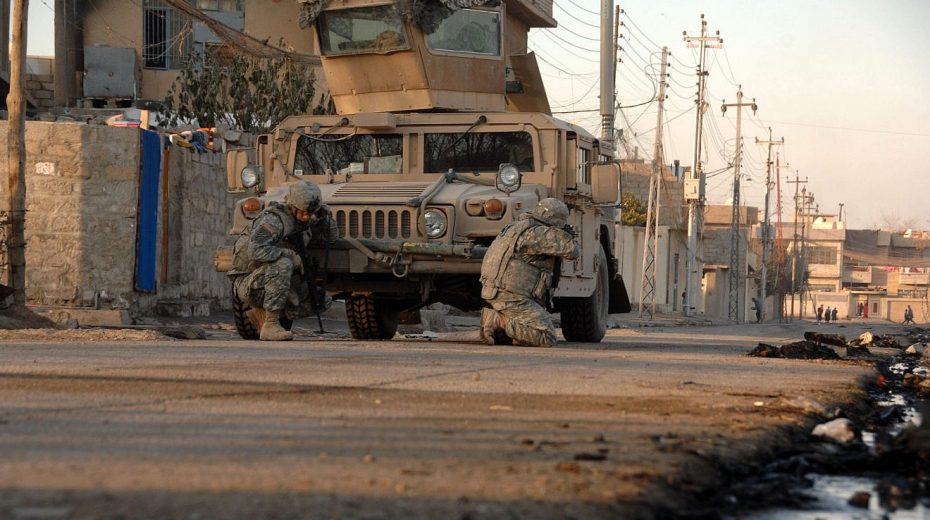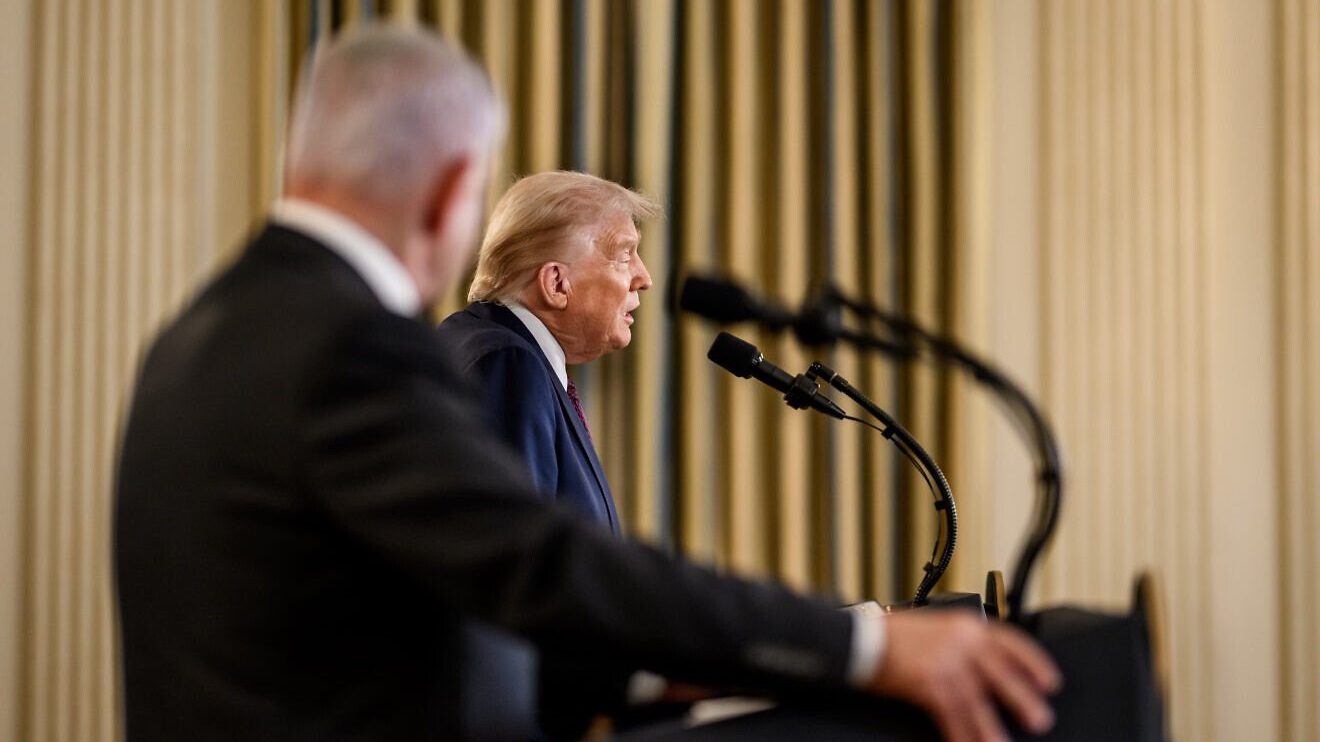The current Israeli operation in Gaza has led to an unprecedented wave of fury against the Jewish state in Western capitals. Massive demonstrations have brought hundreds of thousands of people to the streets in Washington, London, Paris and elsewhere. Muslim residents of these cities are clearly over-represented among the demonstrators, but they are not the only participants.
The official slogans of such protests tend to focus on a call for an immediate ceasefire in Gaza. Many of the banners and slogans on display, however, are unambiguous in their support for Hamas, the Islamist movement that governs Gaza and which carried out the Oct. 7 massacres that precipitated the current war.
The scale and volume of these protests are without precedent. The Gaza war itself, however, and the massacre that preceded it, are neither unique nor without very recent parallel. This raises an interesting question as to the reasons for the particular virulence and fury currently directed against the Israeli war effort.
The closest recent parallel to the current Gaza war, both in terms of the actions that triggered it and regarding the way it is being conducted from a military point of view is the US-led Coalition’s war against Islamic State in the period 2014-19. This war indeed contained a number of episodes of urban combat that directly resemble the current action being undertaken by the Israel Defense Forces in the Gaza Strip.
Mosul and Gaza
I am one of the fairly small group of journalists who covered the ISIS war from close up and who are currently engaged in reporting on the Gaza war. Both the similarities in the wars and the enormous difference in Western perception of them are striking.
Regarding the actions that triggered the conflicts, the similarities are unmistakable. In each case, an Arab movement of Sunni political Islam set out on a campaign of wholesale slaughter against a non-Arab and non-Muslim population in the Levant: Kurdish-speaking Yazidis in the ISIS case, Israeli Jews in that of Hamas.
But can one usefully compare the 21st century, Start-Up Nation, Westernized Israelis with the beleaguered, impoverished non-Arab minorities of northern Syria? The answer is yes. The similarity lies not in the area of their technological development, but rather in the intentions of their enemies towards them.
This became apparent on Oct. 7, 2023. For around 12 hours on that day, the ultra-modern technological defense structures of the State of Israel malfunctioned and ceased to operate. In that mercifully short period, there was little to differentiate between the treatment meted out to the Israeli Jewish communities of the “Gaza envelope,” and that afforded the non-Arab, non-Muslim minorities that faced the onslaught of ISIS on the Nineveh Plains in the summer of 2014.
I was in the Gaza area on Oct. 8, 2023, and in Syria in August 2014. The murderous, indiscriminate slaughter that triggered the ISIS and Hamas wars was of a piece.
When one turns to look at the response, there are also clear parallels. The war to destroy Islamic State required the conquest of an area far larger than that of the Gaza Strip. But in the episodes of urban combat which this included, the similarities are striking.
The current Israeli campaign in Gaza particularly resembles the Coalition’s battle against ISIS in the Iraqi city of Mosul. The latter was the largest urban center that the ISIS jihadis controlled. Getting them out of there took nine months of fighting. The brunt on the ground was borne by units of the Iraqi armed forces, with US air support crucial to their eventual success.
The Mosul fighting—involving the slow enveloping by conventional infantry and armored forces of a well-dug-in jihadi enemy—closely resembled what has been taking place in Gaza since the Israeli ground incursion began on Oct. 27.
The ratio of the dead
Examination of the casualty rates of civilian and military dead in Mosul and currently in Gaza further indicates the similarities. In both cases, the figures must be treated with some skepticism.
Regarding Mosul, estimates vary widely. Figures for the number of ISIS fighters killed range from 7,000 to 25,000. Regarding the number of civilians killed, again, the span is wide. At the lower end, the Associated Press quoted figures suggesting between 9,000 and 11,000 civilians died in the course of the Mosul fighting. The Iraqi Kurdish Asayish intelligence service, meanwhile, estimates that around 40,000 civilians were killed.
In terms of ratio, this means that estimates suggest that there were anywhere between one and four civilians killed in Mosul for each ISIS fighter slain.
Regarding Gaza, the Hamas-controlled Health Ministry in the Strip claims that 20,000 Gazans have been killed so far in the Israeli incursion. The ‘ministry’ records that all those killed are civilians, i.e., it asks observers to believe that not a single Hamas fighter has lost his life in the fighting.
Ron Ben-Yishai, most veteran of Israel’s war correspondents (and very far from an apologist for the current Israeli government), quoted Israeli military sources this week as estimating that somewhere between 7,000 and 9,000 Hamas fighters have been killed in the fighting.
In so far as it can be currently ascertained, the ratio of civilian to military dead in Gaza appears then to broadly resemble that of Mosul.
So similar precipitating events, and comparable military campaigns. Yet the response in the West has been starkly different. No one demonstrated for the civilians killed by coalition bombing during the ISIS war (I personally witnessed enormous mass graves in Raqqa city, rapidly dug by Islamic State to bury the victims of that bombing). There were no furious crowds in Western cities denouncing “genocide.” Most in the West understood, rather, that the deeds of Islamic State and its ideology made it necessary that it be removed from power, in spite of the undoubted ugliness and the deaths of innocents that this would involve.
So what’s the answer? Why this stark contrast? It is difficult not to conclude that the unique place of the Jew in parts of both Islamic and Western political culture and consciousness lies somewhere at the root of the cause. Perhaps some more pleasant explanation can be found. The discrepancy, in any case, is obvious, and enormous.














A lot of the gentile wars are disputes between world spirits. They take turns in demonstrating to their satanic master their capability to keep mankind in various forms of spiritual bondage. World, religious and cultural wars all have a worldly goal, none seek the kingdom of God. God entered the fray early on, and invited mankind to embrace his way by acknowledging their fallen nature and dying to it. Always mankind had to humble themselves before the Lord to learn his way; that they might do justice, love mercy and walk humbly with their God. Micah 6:8. After learning to love God they had to love their neighbours as themselves. Israel embraced the letter of it but still has to embrace the spirit of it by letting the Lord circumcise their hearts in addition to their bodies. Deut 30:6. The world wars to suppress all evidences of God, like Israel and creation, so God gives them over to their depravity. Romans 1:20-25.
Hello Disciple. Amen. If only Israel would acknowledge Jesus Christ as their Saviour and Messiah.
What those in the West in supporting Hamas, don’t realise, is that the same could happen to them as has happened to Israel.
Hi Psalm100al,
Israel does indeed experience national salvation. I like to encourage today’s rabbi’s to consider whether there’s another dimension to being chosen of God. The letter of the law gives us life with God, the Spirit of the law gives us life in God. They can be born-again Jews, and compliment the apostles in teaching the church how it’s supposed to operate.